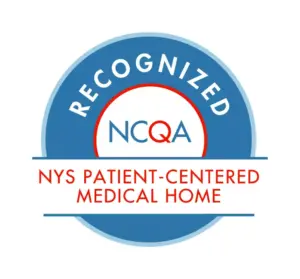
Buffalo Medical Group recognized by NCQA as Patient-Centered Medical Home
By Jeffrey Johns | January 5 2024 | Uncategorized
The Buffalo Medical Group has earned the National Committee for Quality Assurance (NCQA) designation as a Patient-Centered Medical Home (PCMH).
The NCQA’s Patient-Centered Medical Home (PCMH) Recognition program was developed to identify medical practices that have invested in a model of care that puts patients at the forefront and where continuous quality improvement is a priority.
There are the six key criteria for patient-centered medical home accreditation including:
- Team Based Care and Practice Organization: Practices are evaluated on leadership structure, care team responsibilities, how they engage with patients, families and caregivers.
- Care Management and Support: Practice clinicians use care management protocols to help them identify patients who need closely managed care.
- Know and Manage Patients: Practices must meet standards for data collection, medication reconciliation and evidence-based clinical decision support.
- Care Coordination and Care Transitions: Practices ensure that primary and specialty care clinicians share information and manage patient referrals.
- Patient-Centered Access and Continuity: Practices provide patients with convenient access to clinical advice and continuity of care.
- Performance Measurement and Quality Improvement: Practices have processes for measuring their performance and for quality improvement activities.
How this designation benefits BMG patients
The PCMH model emphasizes care coordination, population health, evidence-based guidelines and effective use of health information technology (HIT) to meet the patient’s needs.
PCMH model helps practices:
- Improve patient-centered access and the patient experience.
- Perform comprehensive health assessments to identify patient needs.
- Deliver better preventive care such as immunizations and cancer screenings.
- Prioritize comprehensive care management to keep chronic conditions under control.
- Coordinate with other clinicians involved in patient care and close referral loops to improve continuity and avoid gaps in care.
- Identify patients who require recommended interventions and patients who need medication monitoring.

